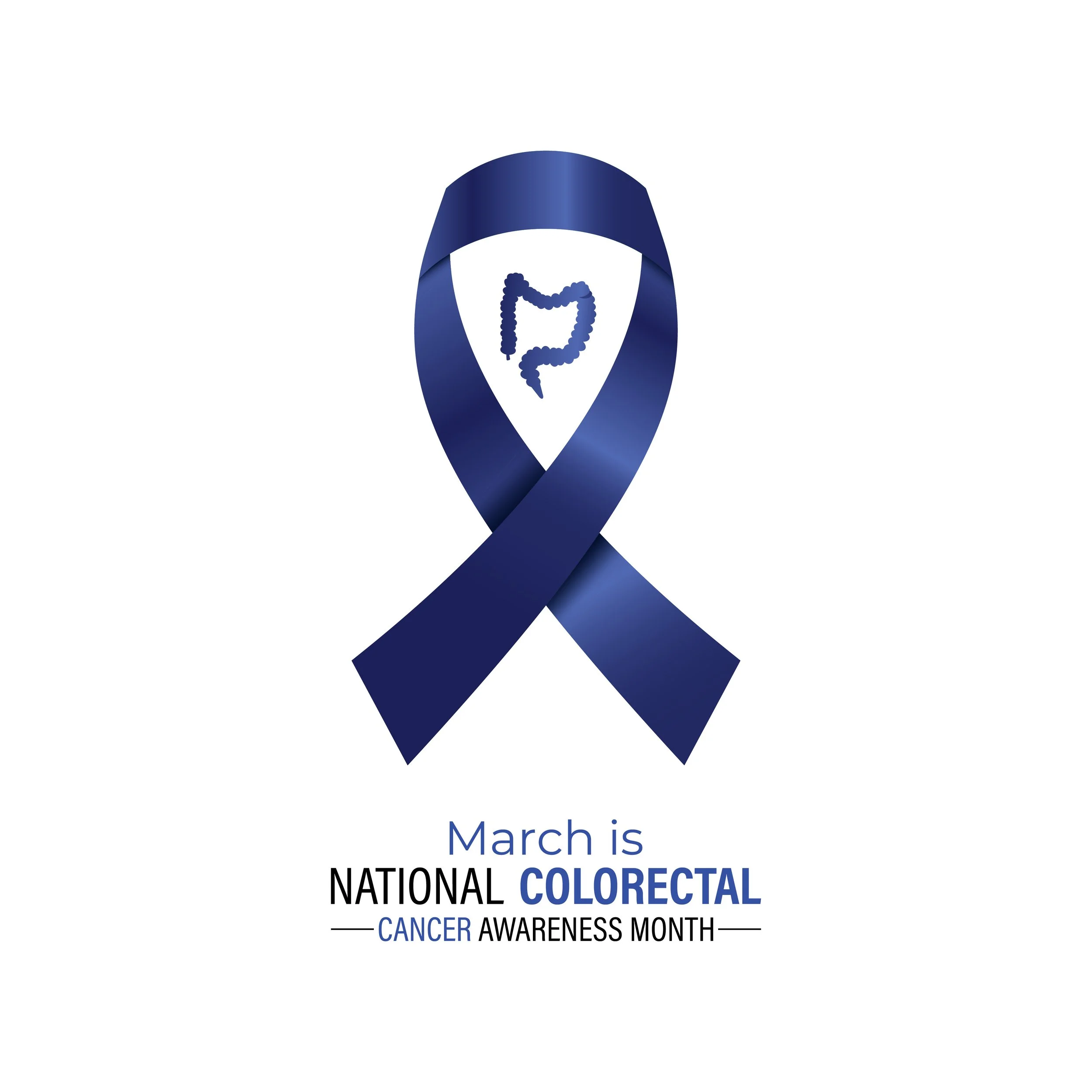March is Colorectal Awareness Month, a time to learn about colorectal cancer (CRC)—the second leading cause of cancer deaths in the U.S. The good news? Colorectal cancer is preventable and treatable when caught early (Kasich & Taylor, 2015).
Tampa Colorectal Clinic is dedicated to raising awareness, providing screenings, and offering advanced treatments to help patients take control of their health.
What Is Colorectal Cancer?
Colorectal cancer begins in the colon or rectum and can grow silently for years. By the time symptoms appear, the disease may already be advanced.
Signs to Watch For:
Changes in bowel habits (diarrhea, constipation, or thinner stools)
Blood in stool or rectal bleeding
Unexplained weight loss
Ongoing abdominal pain or cramping
Fatigue and weakness
Early screening and lifestyle changes can lower your risk significantly (Bhat & East, 2015).
Are You at Risk?
Some factors make colorectal cancer more likely:
Age: Risk increases after 50.
Family history: A parent or sibling with CRC raises your risk.
Inflammatory bowel disease (IBD): Ulcerative colitis and Crohn’s disease.
Diet high in red and processed meats.
Obesity, smoking, and alcohol consumption.
Screening is even more critical for high-risk individuals (Sajjad & Khan, 2017).
Why Early Screening Saves Lives
Colorectal cancer can be prevented through regular screening. If detected early, the five-year survival rate is 90%, but late-stage detection drastically reduces survival (Lan & Li, 2018).
Common Screening Options:
Colonoscopy: The gold standard—detects and removes polyps. Recommended every 10 years after age 45.
Fecal Immunochemical Test (FIT): A stool test to detect blood, done annually.
Stool DNA Test (Cologuard®): Detects abnormal DNA in stool, done every three years.
Sigmoidoscopy: Examines the lower colon, done every five years.
Talk to Tampa Colorectal Clinic about the best screening method for you.
How Tampa Colorectal Clinic Helps
At Tampa Colorectal Clinic, we provide:
Comprehensive screenings – Colonoscopies, genetic testing, and risk assessments.
Minimally invasive surgery – Faster recovery, less scarring.
Personalized care plans – Nutrition and lifestyle guidance tailored to you.
Advanced scar management – Post-surgical scar care with medical-grade silicone therapy.
How to Reduce Your Risk
Eat More Fiber: Load up on fruits, vegetables, and whole grains.
Limit Red & Processed Meats: Cut back on bacon, sausage, and deli meats.
Stay Active: Aim for 30 minutes of exercise daily.
Quit Smoking & Reduce Alcohol: Both increase CRC risk.
Get Screened: Routine checkups save lives!
Lifestyle changes plus regular screenings greatly reduce your risk (Scott, 2018).
Take Action This Colorectal Awareness Month
Colorectal cancer is preventable, treatable, and beatable when caught early. This March, take control of your health—schedule a screening and encourage loved ones to do the same.
Tampa Colorectal Clinic provides expert colorectal care in Tampa and surrounding areas. Early detection saves lives—don’t wait!
Book an Appointment with Tampa Colorectal Clinic
Works Cited
Bhat, S., & East, J. (2015). Colorectal cancer: prevention and early diagnosis. Medicine.
Kasich, J., & Taylor, M. (2015). Colorectal Cancer Awareness Month. Source.
Lan, P., & Li, S. (2018). Screening and prevention strategies for colorectal cancer. Chinese Journal of Digestive Surgery.
Sajjad, A., & Khan, M. (2017). Colorectal Cancer Awareness: Where Do We Stand? Gomal Journal of Medical Sciences.
Scott, A. (2018). Dietary Prevention of Colorectal Cancer.Journal of Food and Nutritional Disorders.

